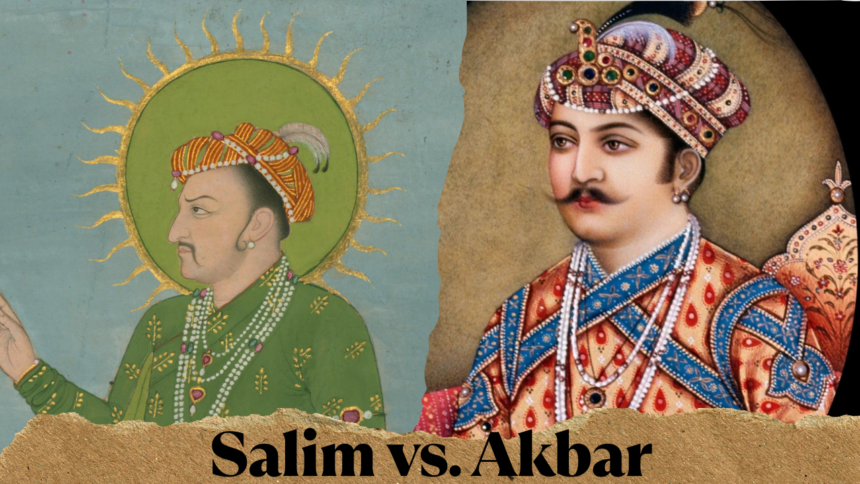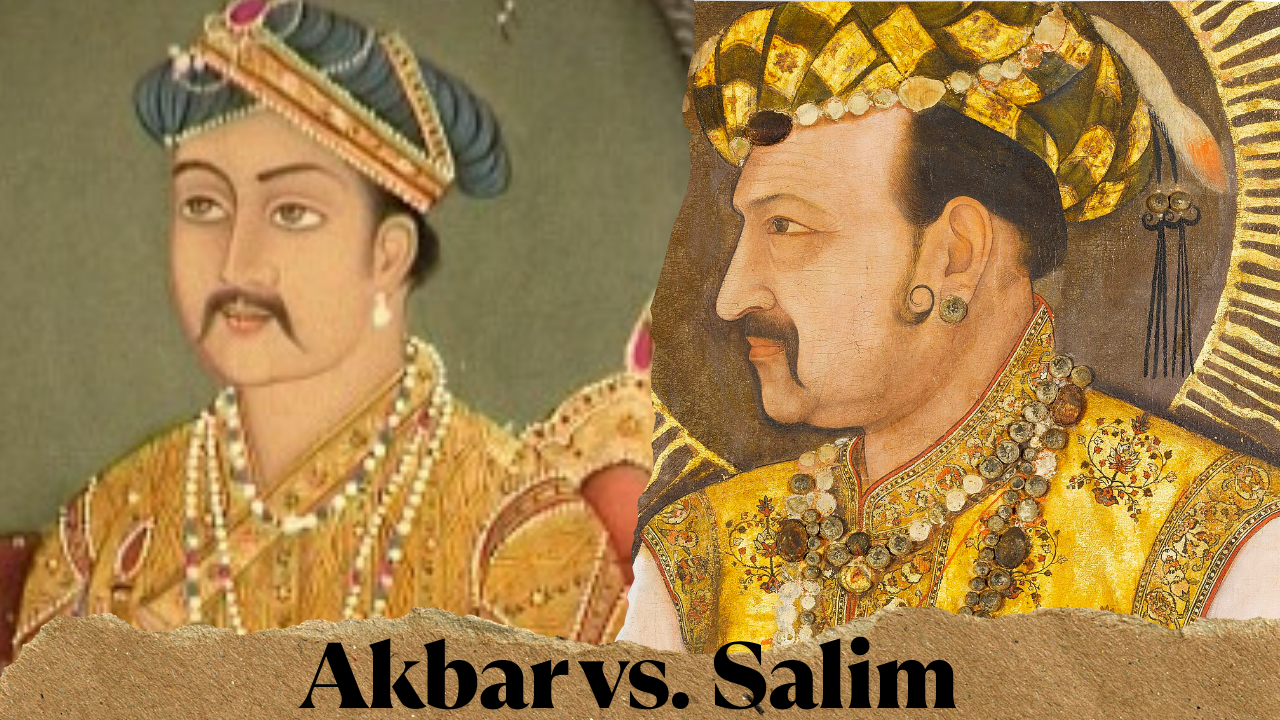The Mughal Domain, known for its glory and wealthy history, moreover had its share of inside clashes. One of the most emotional and candidly charged competitions was between Head Akbar and his child, Sovereign Salim—who afterward got to be Sovereign Jahangir. This fight wasn’t fair approximately control; it was moreover around adore, resistance, and the battle for bequest. Let’s plunge into the intriguing story of Salim vs. Akbar, authentic show that molded the course of Indian history.
The Incredible Mughal: Akbar’s Rule and Vision
Salim vs. Akbar, the third Mughal sovereign, ruled with a vision distant ahead of his time. He was a vital ruler, a military virtuoso, and a man who accepted in devout resistance. His run the show from 1556 to 1605 saw the extension of the Mughal Realm to exceptional statures. But behind the crown lay a father who had tall desires from his child and beneficiary, Sovereign Salim.
Prince Salim: The Beneficiary with a Defiant Streak
Prince Salim was raised in the lap of extravagance, but his relationship with his father was anything but smooth. Not at all like Akbar, who had went through his early a long time in hardship, Salim was spoiled with the finest things in life. He was gutsy, brilliantly, and charismatic, but he was too incautious and profoundly enthusiastic. His adore for craftsmanship, verse, and wine made him distinctive from the battle-hardened Akbar.
A Adore Story That Shook the Empire
One of the key reasons for the father-son crack was Salim’s adore for Anarkali, a excellent concubine. Legends say that their adore was so seriously that it got to be a outrage in the Mughal court. Salim vs. Akbar, a ruler who saw everything through the focal point of control and discretion, saw this issue as an unsatisfactory diversion for the future sovereign. A few accounts indeed recommend that Akbar requested Anarkali’s execution, which as it were extended the severity between father and son.
The Resistance: When Child Raised Arms Against Father
By the late 1590s, the pressures between Akbar and Salim had come to their crest. Salim, restless to claim the position of royalty, transparently revolted against his father. He assembled an armed force and announced himself sovereign. This act of insubordination driven to coordinate showdowns between the Mughal strengths and Salim’s supporters. Be that as it may, Akbar, the experienced warrior, pulverized the disobedience and pardoned Salim instep of executing him, as was the standard for traitors.
Salim’s Way to the Throne
Despite his disobedience, Salim remained the beneficiary to the domain. After Akbar’s passing in 1605, he rose the position of royalty as Head Jahangir. His run the show, in spite of the fact that not as expansionist as his father’s, was stamped by building magnificence, imaginative brilliance, and regulatory changes. He proceeded the Mughal bequest whereas moreover forming it in his possess one of a kind way.
A Complicated Relationship: Cherish and Resentment
Even in spite of the fact that Salim got to be head, his relationship with Akbar remained complicated. Students of history accept that Salim both appreciated and loathed his father. He recognized Akbar’s significance but battled with his father’s definitive approach and the weight of living up to his legacy.
The Control Battle That Characterized Mughal History
The strife between Salim and Akbar was more than a individual feud—it symbolized the age-old battle between convention and alter, obligation and want. Whereas Akbar saw himself as the planner of an domain, Salim needed to step out of his father’s shadow and set up his claim character. Their clash highlights the challenges of progression and the human feelings that regularly manage the course of history.
Lessons from Salim vs. Akbar: Past History
Their story is more than fair a verifiable occasion; it reflects the battles seen in numerous families, indeed nowadays. The fight between desires and individual wants, between parental control and a child’s freedom, is a ageless subject that rises above generations.
Final Contemplations: The Bequest of a Father-Son Rivalry
While Salim vs. Akbar remains one of the most prominent rulers of India, Salim—Emperor Jahangir—left his claim stamp on history. Their struggle may have been severe, but it too molded the Mughal Empire’s future. The father laid the establishment, and the child carried it forward, but in his claim fashion. Their story remains one of the most captivating adventures of cherish, control, and resistance in Indian history.
Read More: The Rise & Rule of Aurangzeb: A Mughal Emperor Legacy
Conclusion
History frequently romanticizes awesome rulers, but at the center, they were people with feelings, blemishes, and wants. The clash between Salim vs. Akbar reminds us that control battles aren’t fair almost aspiration; they are profoundly individual. Whether in a regal court or a modern-day family, generational clashes proceed to shape the world in ways we might not continuously realize.


